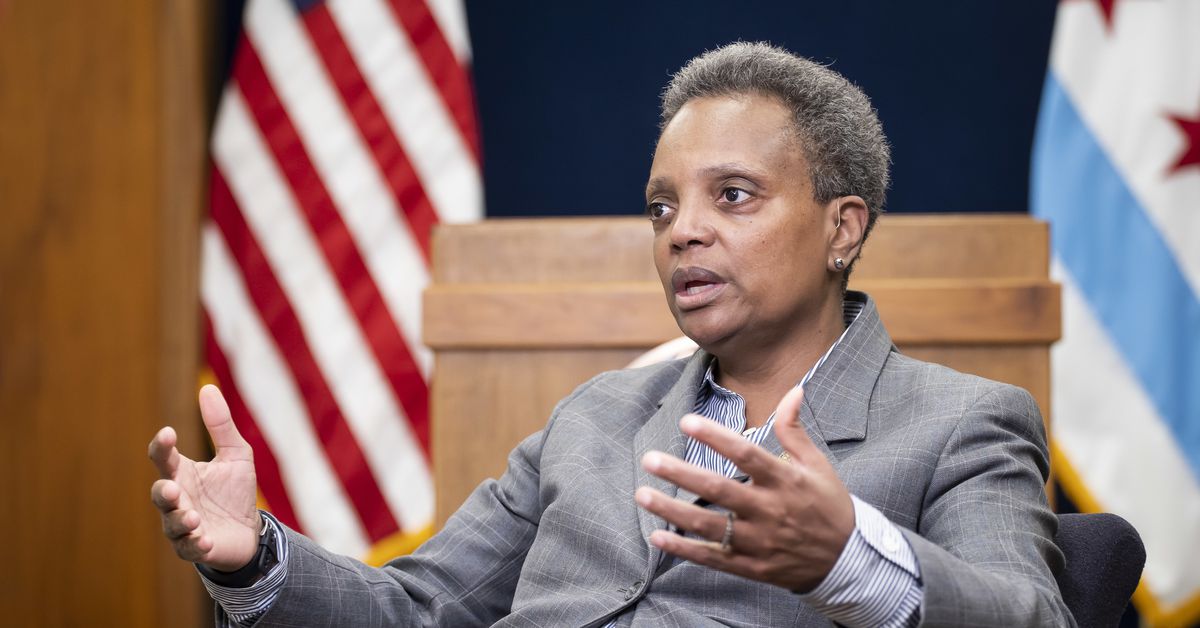Mayor Lori Lightfoot said Friday she’s looking at a “range of potential revenue-generating options” to cover declining revenues and rising costs tied to the coronavirus.
Last month, Lightfoot vowed to be “straightforward and very transparent” with Chicagoans if and when she concluded tax increases were needed to plug the giant hole in her 2020 budget caused by the stay-at-home shutdown of the city’s economy.
On Friday, the tough talk began.
“We’re looking at a range of potential revenue-generating options. Look, the reality is, I don’t think there’s any city budget across the country that is not gonna have to look at one-time measures to put yourself back on track,” the mayor said.
“We’d like to avoid those in this administration. But, the truth is, we’re probably gonna have to look at those as well given the magnitude of the challenge that we’re facing — not only to make sure that we’re steady for 2020 but looking to 2021 and beyond.”
Lightfoot said increasing property taxes is “always the last choice,” even though it is the most reliable source of revenue. But it is “particularly the last choice in this environment, when people are really, really suffering and unemployment has risen to levels not seen since the Great Depression.”
“The number of landlords that are worried about foreclosure. The number of renters that are worried about being able to make the rent. If we raise property taxes, that has a cascading effect on the ecosystem — on landlords and renters at a time when neither can afford it,” she said.
With property taxes off the table, where will Lightfoot turn for revenue?
She would only say, “The reality is that, when you have to have revenue, it’s going to impact someone — and probably someones plural. But we’re looking at efficiencies that we save internally first. I still believe that you can’t go out and talk to the taxpayers about sacrifice if you’re not making commonsense sacrifices within city government.”
For weeks after the stay-at-home shutdown, Lightfoot said Chicago was well-positioned to weather the storm of increased costs and declining revenues tied to the coronavirus pandemic without blowing a giant hole in her precariously balanced budget.
She repeatedly said “no one revenue stream is more than 13%” and that all of the “economically sensitive” revenues together total just 25%.
Her claims about city finances ignored the fact that when the stock market drops and city pension funds don’t meet their expected investment returns, Chicago taxpayers make up the difference.
The mayor even ridiculed former mayoral challenger Paul Vallas for writing an opinion column claiming Chicago was “facing a code-red fiscal crisis” and Lightfoot’s “claim that Chicago’s budget is in good shape strains credulity.”
In a stinging public put-down, Lightfoot referred to Vallas as “desperate to be relevant” during the crisis and said he “probably hasn’t touched a city budget, doesn’t know the nuances, in probably two decades.”
Vallas served as city revenue director, budget director and Chicago Public Schools CEO under former Mayor Richard M. Daley.
On April 7, the mayor changed her tune and acknowledged the possibility of a midyear budget fix.
On Friday, she again refused to project the size of Chicago’s budget shortfall, saying the situation was still “unbelievably fluid” and an initial estimate would end up too low and need to be revised upward at a time when laid-off Chicagoans are struggling to pay rent and put food on the table.
“A lot of it depends on when we reopen, who reopens, what the revenue stream is from the businesses that do reopen. This is not simple math. It’s very, very complicated and it’s fluid. We want to put something out that we can stand behind,” she said.
“I’m a cautious person. I want to make sure we understand the full magnitude of the challenge. Has there been an impact? Of course there has been. Has it been significant? Yes. What that looks like precisely, we still need to look at some other data that just hasn’t come in yet.”
Lightfoot said a “big, important, determining factor” in the need to raise local taxes will be what, if any, revenue replacement relief comes from Congress in the next round of stimulus money.
She noted the Federal Reserve has also “opened up potential borrowing for municipalities like Chicago, and she is “still working with them to understand what that possibility would look like” while maintaining dialogue with Wall Street ratings agencies.



















